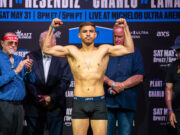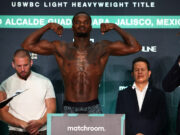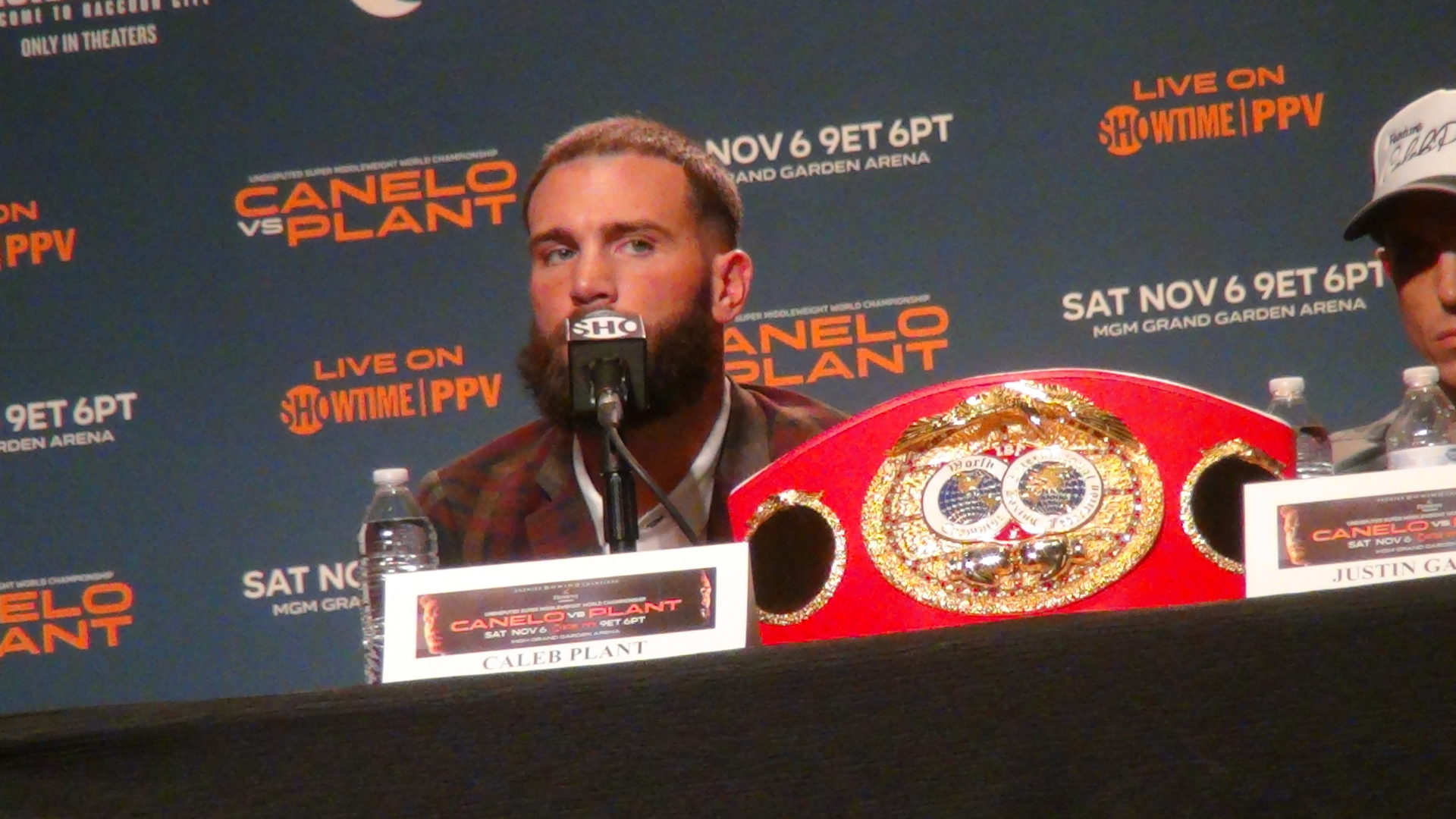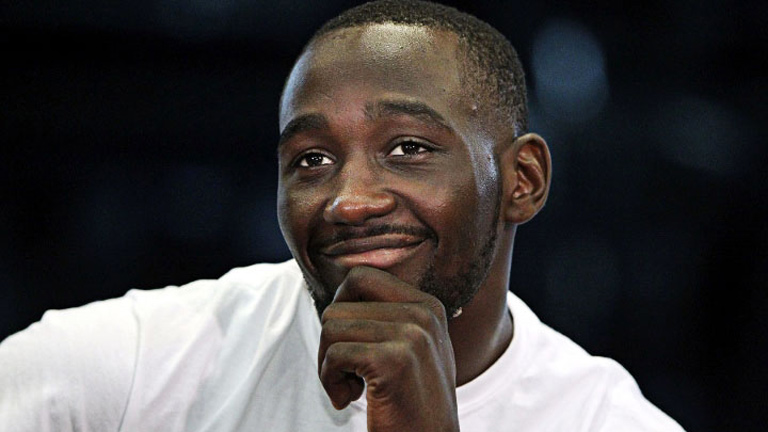By Jimmy Tobin-
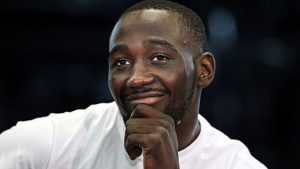
This Saturday, undefeated American, Terence Crawford, meets Dominican, Felix Diaz, in a fight that is likely to only confirm junior welterweight supremacy. There should be an impassioned crowd on hand in Madison Square Garden that night too, at least in the rows that fit in the frame of a television screen, close enough to the production tables to mask the empty silence sprawling toward the exits.
The question of whether Diaz is a worthy challenger feels almost as out of place as the question of whether he is a deserving one. His lone loss, a disputed majority decision to Lamont Peterson, is respectable enough; his best win, a decision over Sammy Vasquez, was utterly complete. Diaz seems very much to fit into the modern contender mold: there is nothing especially remarkable about the southpaw, but he is capable. And should that assessment prove insufficient to glorify Crawford’s unmaking of him, rest assured the talking heads ringside will reference Diaz’ Olympic gold medal to buttress his professional credentials. Crawford however, knows no threat at 140 pounds, and efforts to fashion those members of the herd he culls into anything but his next opponent feel, if not insincere, then tedious, the product of too much abstraction.
Diaz may pocket a round or two if Crawford lets him, his confidence bolstered by the pyrrhic victories that begin him down the path to his doom. Crawford will measure, switch southpaw both frivolously and with purpose, decide at some point it is time to establish his dominance, and then thoroughly, maliciously, strip Diaz of his illusions. Quietly or otherwise, on his feet or his back, Diaz will go the way of his thirty predecessors; a fact that reflects matchmaking, yes, but also Crawford’s peerlessness. Few—if any—are the Crawford fights where the victor and not the manner of victory is in question.
It should surprise no one then, that Top Rank boss, Bob Arum, has been speaking of his obligation to pit the past against the future, and finally set Manny Pacquiao across the ring from Crawford. And for those who see impatience in the use of “finally” here, ask yourself this: after Crawford defeated Viktor Postol, was there any real challenge to his throne? There will always be opponents—Arum can spit shine a John Molina or Felix Diaz to delay in perpetuity the obvious—but since beating Postol last July there has been only one opponent for Crawford. Arum knows this, which explains his current enthusiasm: dangling a future opponent to distract from the present one is a tactic he has long employed. The bait is set, now await the switch.
There is a catch, of course, which can only mean further delays. Before making Pacquiao-Crawford, Arum would first like to see Crawford unify the division against Namibia’s, Julius Indongo. (And what does it say of Crawford’s next two fights that Arum is making plans beyond them?). Indongo may be a fine fighter, but a fight with Crawford would present aficionados the same uninspiring challenge: discerning how, not whether, Crawford will win (and if that is selling Indongo short, let him prove it first against someone better than Ricky Burns). The unification route makes some sense for Arum in that multiple titles means multiple mandatory defenses. When Crawford unifies he could be hogtied by mandatory defenses, none of which would accomplish more than further establishing the obvious, but each would be financed by HBO (which has already endorsed one fighter’s fetish for titles). For Arum, that is probably justification enough.
And then there is Pacquiao, who might be the underdog against Crawford but who retains enough athleticism and guile to flummox every welterweight on the planet. He is certainly too good for Jeff Horn, who owes his July fight with Pacquiao to his being Australian and little else. If Arum can successfully package Pacquiao elsewhere (and he recently stated he expects the 55,000 seat Suncorp Stadium in Brisbane to sell out), he will do so for as long as he can. He is acting like the retiree who burns through what he could have left to his heirs, living indulgently at the expense of a future he could reasonably be expected to preserve.
That bodes poorly for the future—because Pacquiao can ratify Crawford in a way titles cannot—but also for the present in that Pacquiao is being squandered. Perhaps asking him to immolate himself—even in the name of exposing recency bias—after a career that leaves so few questions is being unfair to a fighter who has earned a relatively tranquil twilight to his career. But such considerations must be made in the context of the price tag attached to his non-events and the obvious ability he retains. Mind you, talk of Pacquiao being squandered might be overly generous to a 38-year-old with 67 professional fights, one who could run aground against a fighter like Kell Brook or Errol Spence or Terence Crawford. But his undoing—so long as it is violent—remains a spectacle to behold, and Pacquiao in something other than a foregone conclusion is an event that need not be transported to Australia. That explains part of the appeal of a Crawford fight: if Crawford is fighter enough to defeat Pacquiao, he will set upon the aged icon with a healthy disdain, ensuring more than a twelve round transaction.
The hope then, is that this time Arum is being genuine and that he indeed intends to make the best fight he can. Crawford has had recent legal troubles and his relationship with the media is fragile at best. He could certainly use the right kind of attention, the right kind of opponent, because he too is being squandered. And in a year that is delivering a number of quality fights, perhaps a little forgotten too.



